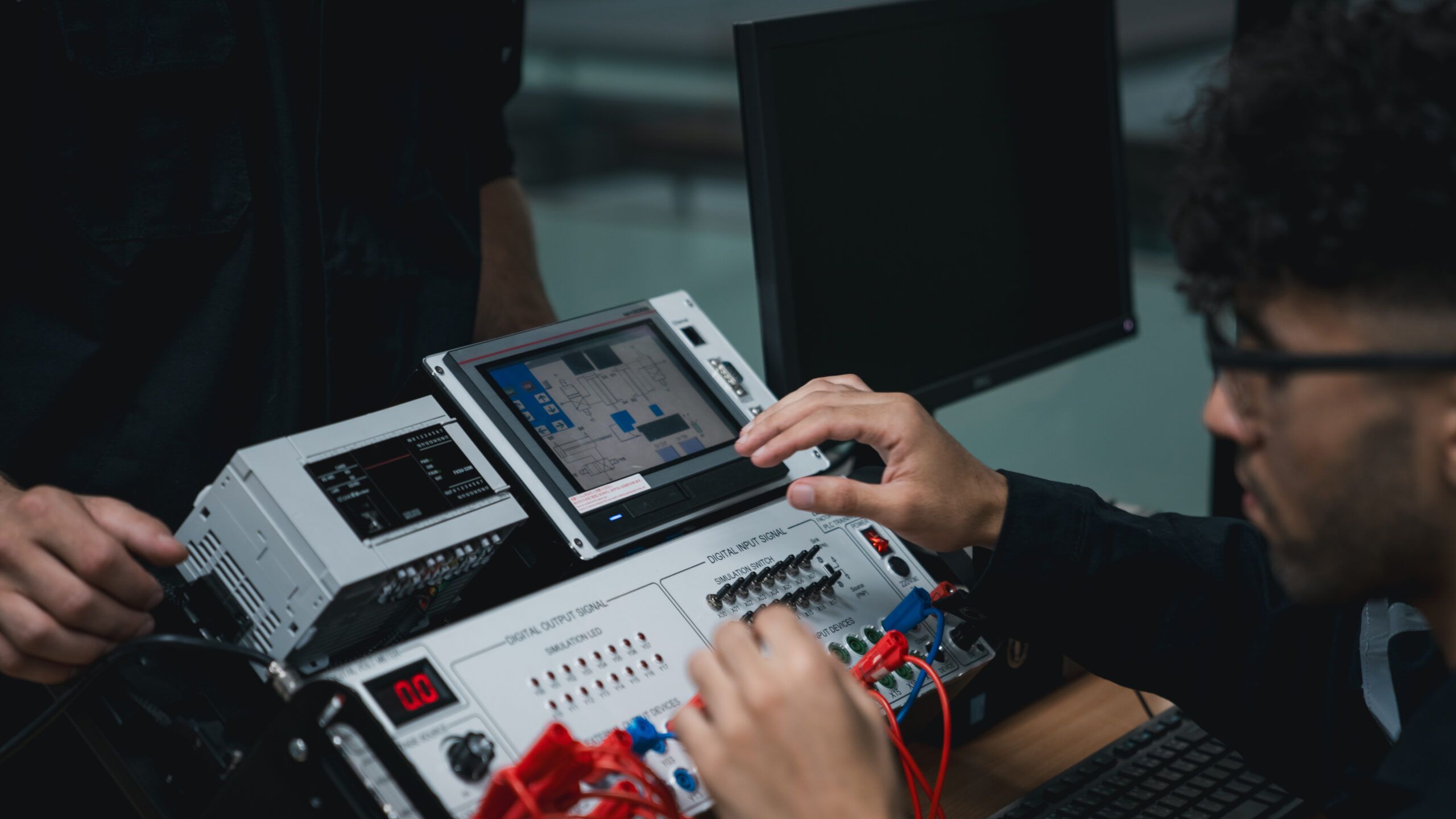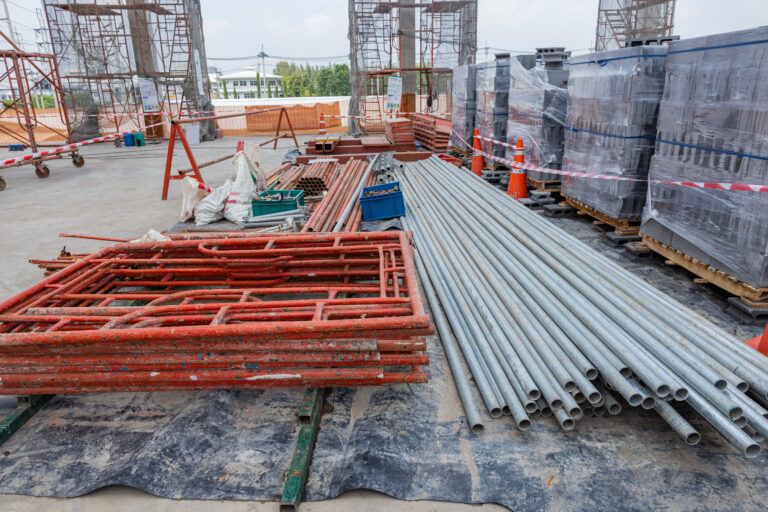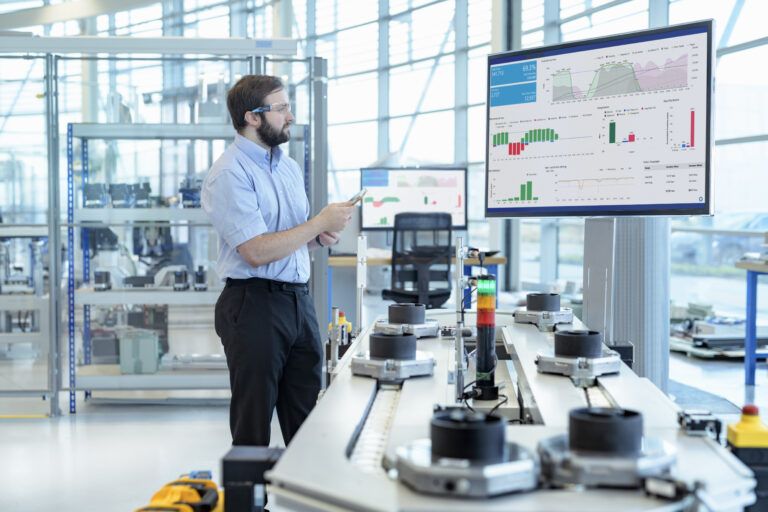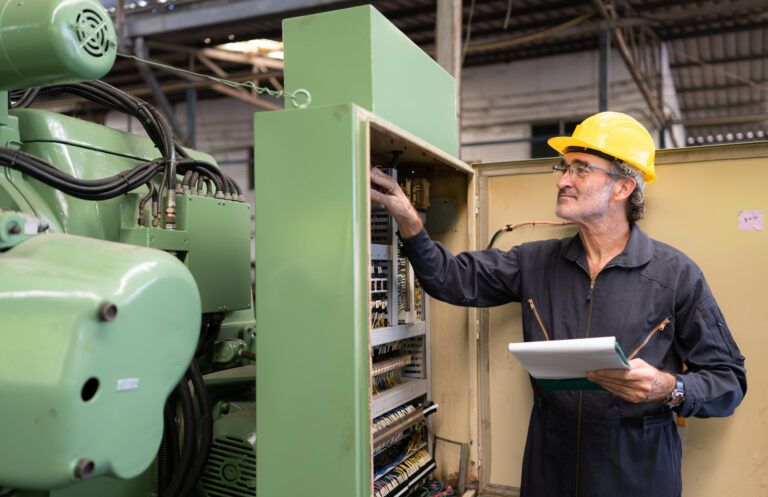Embarking on a career as an Instrumentation & Control Engineer is a journey filled with innovation, challenges, and the satisfaction of making complex systems work seamlessly. This field, essential in industries from manufacturing to oil and gas, requires a blend of education, practical experience, and continuous learning to master. Whether you’re just starting out with a bachelor’s degree in engineering or aiming to specialise further with advanced degrees, the path is clear, but it demands dedication.
Alongside education, developing a robust set of skills in control systems, programming, and industry regulations is crucial. Certifications like the Certified Control Systems Technician (CCST) and the Professional Engineer (PE) license can significantly enhance your career prospects. Moreover, practical experience through internships and entry-level positions is invaluable.
As you progress, opportunities to lead projects and specialise in specific sectors will arise, promising a rewarding career ahead. Let’s dive into what it takes to have a successful career in Instrumentation & Control Engineering and the exciting opportunities this path holds.
What Education is Required for This Career?
To embark on a career in cybersecurity, a field that is increasingly vital in our digital age, a well-structured educational foundation is essential. A career in cybersecurity requires a solid educational foundation starting with a bachelor’s degree, supplemented by certifications for skill validation and continuous learning, and potentially an advanced degree for higher-level positions. This academic pathway is crucial in preparing professionals to protect digital assets and effectively counter cyber threats.
Bachelor’s Degree in Engineering
Pursuing a career in engineering begins with obtaining a Bachelor’s degree in engineering. This foundational degree is the first step towards a specialised career path and can be focused on areas such as:
- Electrical Engineering: Focused on the study and application of electricity, electronics, and electromagnetism, preparing students for a career in designing and improving electrical devices and systems.
- Mechanical Engineering: Centers on the design, analysis, manufacturing, and maintenance of mechanical systems, equipping students with the knowledge to innovate in fields from automotive to aerospace.
- Control Systems Engineering: Specialises in the modelling of dynamic systems and the design of controllers that cause systems to behave in a desired manner, crucial for automation, robotics, and systems integration.
Advanced Degrees for Specialisation
For professionals seeking to deepen their expertise or lead in specialised areas, advanced degrees offer a pathway to these goals:
- Master’s Degree in Control Systems Engineering: Provides an in-depth exploration of advanced control theory, system dynamics, and the application of control systems in various industries, preparing graduates for advanced roles in the design and development of control systems.
- PhD for Research and Academic Positions: Aimed at those who wish to contribute to the engineering field through research or take on academic roles. A PhD allows for deep specialisation in areas such as electrical, mechanical, or control systems engineering, fostering innovation and the development of new technologies.
Each step in this educational journey equips aspiring engineers with the necessary knowledge, skills, and credentials to advance in their chosen field, contribute to technological progress, and lead future innovations.
Essential Skills for Instrumentation & Control Engineers
Instrumentation and control engineers require a blend of technical knowledge and practical skills to excel in their field. These skills form the core of an Instrumentation & Control Engineer’s expertise, driving efficiency, safety, and innovation in industrial settings.
Understanding of Control Systems
Instrumentation and Control Engineers must have a deep understanding of control systems, which is vital for automating and optimising industrial processes.
Familiarity with PID Controllers
A solid familiarity with PID (Proportional, Integral, Derivative) controllers is essential, as they adjust system control inputs to correct process errors and ensure stability.
Knowledge of Distributed Control Systems (DCS)
Knowledge of Distributed Control Systems (DCS) is crucial for engineers, enabling centralised monitoring and control of plant operations, thus enhancing efficiency and safety.
Proficiency in Programming
Proficiency in programming is a cornerstone skill necessary for developing and modifying software that controls machinery and processes, ensuring operational efficiency.
PLC Programming Skills
PLC programming skills are indispensable for automating industrial tasks, from assembly lines to robotic devices, using Programmable Logic Controllers.
SCADA System Design and Implementation
Skills in SCADA system design and implementation are critical for real-time process monitoring and control across various industries, ensuring effective management of resources.
Knowledge of Industry Regulations
Engineers must possess knowledge of industry regulations to ensure compliance and uphold both safety and environmental standards.
Safety Standards like OSHA
Familiarity with safety standards, such as those established by the Occupational Safety and Health Administration (OSHA), is crucial for creating and maintaining a safe work environment.
Environmental Regulations Compliance
Understanding and compliance with environmental regulations are crucial for minimising the industrial impact on the environment and ensuring sustainable operations.
Certifications to Enhance Career Prospects
For Instrumentation & Control Engineers, obtaining certifications is a strategic move to enhance career prospects. Each certification, tailored to varying experience levels and specialisations, plays a pivotal role in advancing an engineer’s credibility, expertise, and opportunities in the field. Compliance with state-specific requirements for the PE license ensures engineers meet the highest standards of competence and professionalism.
Certified Control Systems Technician (CCST)
The Certified Control Systems Technician (CCST) certification is a pivotal credential for instrumentation and control professionals, structured into three progressive levels:
- Level I – Basic: Tailored for individuals at the onset of their career, emphasising foundational skills and knowledge in control systems.
- Level II – Intermediate: Designed for professionals seeking to deepen their understanding and practical experience in the domain.
- Level III – Advanced: Reserved for seasoned experts with comprehensive knowledge and extensive experience, capable of managing sophisticated projects and challenges.
Professional Engineer (PE) License
Achieving a Professional Engineer (PE) license marks a significant milestone, denoting a high level of competence and professionalism:
- Requirements vary by state: Licensure prerequisites differ across the U.S., generally encompassing specific education, work experience, and examination criteria.
- Typically requires work experience and exam: Candidates are usually expected to accumulate several years of relevant work experience under a licensed engineer’s supervision and successfully pass the Principles and Practice of Engineering (PE) exam.
These credentials serve as key indicators of an engineer’s expertise, dedication, and commitment to excellence in the field of Instrumentation and Control Engineering, paving the way for enhanced career opportunities and professional growth.
Gaining Practical Experience
For aspiring Instrumentation & Control Engineers, gaining practical experience is crucial in bridging the gap between academic knowledge and real-world application. This experiential learning is essential for mastering the complexities of control systems and automation, ultimately leading to more significant responsibilities and roles within the field.
Internships in Relevant Industries
Securing internships in relevant industries is a pivotal step for budding instrumentation and control engineers. Opportunities in manufacturing plants and oil and gas facilities offer practical insights and hands-on experience, essential for grasping the intricacies of the field.
Entry-Level Positions
Embarking on a career through entry-level positions further solidifies practical knowledge. Roles such as control system technician and automation engineer act as foundational building blocks, enabling individuals to apply academic learning in real-world scenarios. This hands-on experience is crucial for career progression in the dynamic field of instrumentation and control engineering.
Career Advancement Opportunities
For instrumentation and control engineers, the path to career advancement is marked by opportunities to take on more complex responsibilities and leadership roles. This progression not only enhances professional standing but also contributes significantly to the field’s advancement.
Senior Control Engineer
Becoming a senior control engineer signifies a high level of expertise, involving leading project teams and designing complex control systems. This role is pivotal in developing innovative solutions that enhance efficiency and safety across various sectors.
Project Manager in Control Systems
As a project manager in control systems, professionals are tasked with overseeing the project lifecycle, ensuring projects are completed on time and within budget. This includes budget and resource management, which is critical for the successful execution of large-scale projects.
Specialist Roles in Specific Industries
Advancement can also lead to specialist roles in specific industries, such as pharmaceutical manufacturing or oil and gas extraction. These positions require a deep understanding of the unique challenges and regulations within these fields, enabling engineers to make significant contributions to industry-specific advancements and innovations.
Mastering Control in a Connected World
Instrumentation & Control Engineering offers a career rich in innovation, impact, and opportunity. From education and hands-on experience to certifications and leadership roles, this article outlines a comprehensive roadmap for building a successful path in the I&C field. Whether designing complex automation systems or ensuring regulatory compliance, I&C engineers are at the core of industrial efficiency and safety.
At Vista Projects, our multi-disciplinary engineering expertise includes a strong focus on instrumentation and control systems. We support clients across the energy and industrial sectors with tailored automation solutions that elevate performance and sustainability.
If you’re ready to take control of your career, or your project, reach out to Vista Projects and see what precision engineering can achieve.









